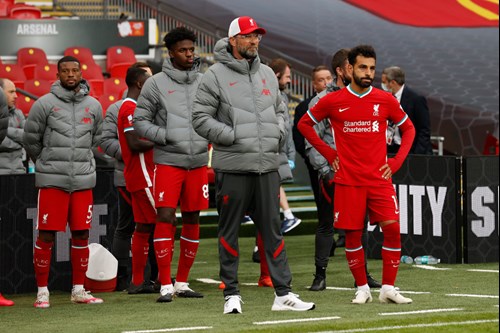As a former professional player, coach and manager, it’s safe to say Lee Richardson knows his football. Working as a performance psychologist for over ten years and now a consultant at Liverpool FC, he is a renowned expert in this rapidly developing aspect of the modern game.
Speaking to UCFB students in an exclusive webinar, he said: “I remember working with Roy Hodgson at Crystal Palace and the harsh way he handled players. It was just the way it was in those days, but players wouldn’t respond well to that now. Players expect better treatment these days.”
Really enjoyed chatting to Liverpool’s performance psychologist @lee_aimfor about his work in football and branching out to offer vital mental health support to people across the world online. #LFC https://t.co/PvdNJ2UD8K
— James Pearce (@JamesPearceLFC) October 12, 2020
The development in performance psychology, which Lee admits established itself in other sports long before football, is slowly creeping its way into coaching and management. Now, he says, a key aspect of working with players is understanding their psychological behaviour and mental health off the pitch.
Lee said: “Lots of the competencies of being a coach link to psychological competencies to instruct and inspire. The best coaches are able to do that and they’re able to affect behaviour in a way that’s unique to you. It does come back to, in most contexts, building relationships.”
He added: “All things point towards a more psychologically informed coach in this modern era.”
This psychologically orientated approach to monitoring players is exactly what Lee has brought to current Premier League champions Liverpool, and is, he says, one of the key ways the Premier League will develop in years to come. Recognising behavioural patterns of play is something they’re currently working on at Liverpool, particularly given the club’s struggle for form in domestic competitions in the current season.
The performance psychologist said: “My role is very much focussed on individuals – I have conversations with Jurgen Klopp from time to time to hear his input. It’s mostly working with players who want to have me as part of a process. Long-term injury players in particular; there have been several of those recently, so I’m looking to evolve how we work with them.”
Lee added: “There’s other areas we’re looking to improve, it’s not something that stands still.”
In fact, Lee wants to implement ongoing assessments of players to ensure that they’re mentally, as well as physically, capable of competing in the high-pressure environment of the Premier League.

He said: “I’d like some kind of evaluation of where [players] are at with their mindset. We’re aiming for the facility to periodically assess players for a range of social and psychological issues. Ideally weekly or the day before a game to make sure they’re fit to play.”
But this psychological support often fails to extend to players who need it most. Footballers may require more assistance after hanging up their boots than they did whilst playing, but they receive only a fraction of it. Players can face something of an identity crisis in their early 30s due to the unique nature of retiring so young – something Lee has witnessed countless times.
The former Watford FC player said: “The idea of a mid-life crisis, loss of identity and who you are happens at a very young age in sport. Where had it all gone? Where’s it all going? What else could I do? It’s often an anxious, stressful time for players.”
Similarly, players who devote their lives to the sport but fail to make it professionally are often overlooked with regards to their mental health. Nick Richardson, Lee’s older brother and former Cardiff City player, claims that psychological support in football should not be reserved exclusively for elite players, but that it needs to be enforced throughout the football pyramid to prepare aspiring players for potential knockbacks.
Also speaking on the webinar, Nick said: “With the modern academy system, there needs to be a balance between being supportive and realistic. In terms of the numbers that go from academies to apprentice to professional, there are very few. It’s psychologically hard to take, as what’s left is a fraction of the players that started out.”



















